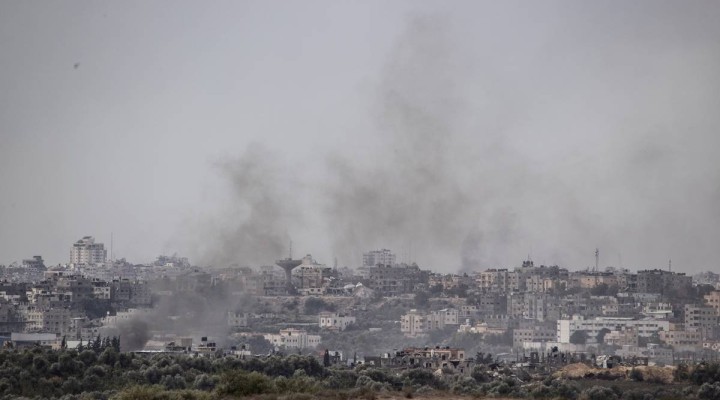A humanitarian pause and the surge in human rights violations

After much useless public debate over Israel’s alleged right to defend itself, the international community regained its footing as the humanitarian paradigm, once more, comes within reach. A four day pause after an agreement reached by Israel and Hamas which would also see the release of 50 Israeli female hostages in exchange for the release of 150 female Palestinian prisoners. The pause has now been delayed until Friday.
The resumption of the humanitarian paradigm will be the first step the international community will exploit to normalise not only Israel’s colonial violence but the extent of the damage it has caused, not to mention the death toll of Palestinian civilians.
Not that there were no misgivings. According to an article on Politico, the Biden administration was concerned that the humanitarian pause “would allow journalists broader access to Gaza and the opportunity to further illuminate the devastation there and turn public opinion on Israel.”
The EU’s Commissioner for Humanitarian Aid and Crisis Management, Janez Lenarčič, expressed the hope of “substantial surge in humanitarian aid delivery into and within Gaza” and called for further humanitarian pauses to allow further assistance. What is left unsaid by the hypocritical humanitarian advocates is what will be done in between. Is the international community, in this case the EU, really concerned with humanitarian aid reaching Palestinian civilians in Gaza, or is it a case of enabling Israel’s war crimes and providing the settler-colonial entity with a lull while it decides its next aggressive steps?
A pause is not a ceasefire and, while humanitarian aid will offer Palestinians slight temporary respite, it will never match or surpass what Israel has the capability to inflict in terms of destruction. The international community, however, would prefer no debate on this reality. As long as Gaza, once again, falls within the parameters of the humanitarian paradigm, and the new wave of displacement, larger than that of the 1948 Nakba and from a sliver of what remains of Palestine, is boxed into statistical data, humanitarian aid will not be seen as a matter of necessity, but a series of financial pledges that might or might not be effected.
Israeli Intelligence Minister, Gila Gamliel, is the latest to suggest voluntary resettlement of displaced Palestinians in Gaza. “Instead of funnelling money to rebuild Gaza or to the failed UNRWA, the international community can assist in the costs of resettlement, helping the people of Gaza build new lives in their new host countries,” she wrote in the Jerusalem Post, leaving out the part that Israeli colonisation would benefit from a complete expulsion of the Palestinian people from Gaza. There is no voluntary resettlement in colonialism, only the replacement of the indigenous Palestinian population.
Gamliel’s purported solution is one that would be effected “after Hamas has been defeated and annihilated”. Given that Israel has failed in that endeavour, which means a prolonged aggression with temporary pauses may not be too far-fetched, how will the international community sustain the paradigm now, and how much will Palestinians have to settle for, less thaN what is already meagre and dehumanising in terms of humanitarian aid?
https://www.middleeastmonitor.com/20231123-a-humanitarian-pause-and-the-surge-in-human-rights-violations/
 TheAltWorld
TheAltWorld 
0 thoughts on “A humanitarian pause and the surge in human rights violations”